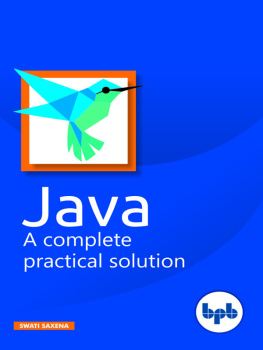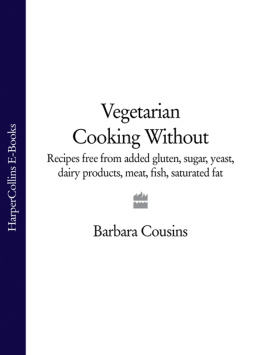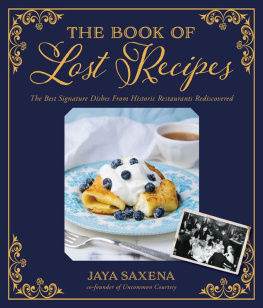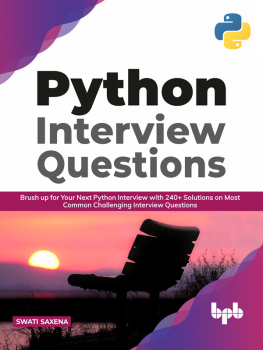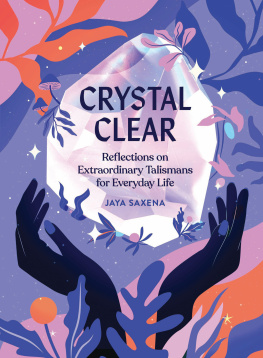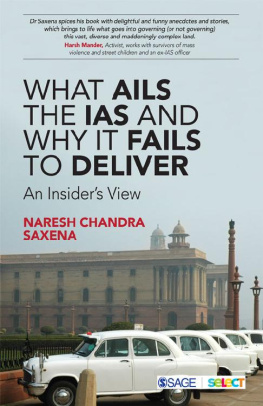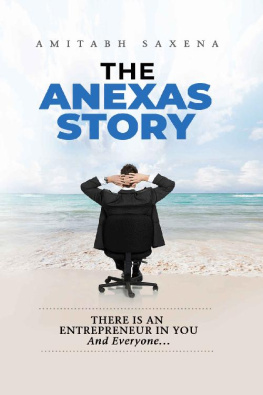The Vegetarian Imperative
The Vegetarian Imperative
ANAND M. SAXENA

2011 The Johns Hopkins University Press
All rights reserved. Published 2011
Printed in the United States of America on acid-free paper
2 4 6 8 9 7 5 3 1
The Johns Hopkins University Press
2715 North Charles Street
Baltimore, Maryland 21218-4363
www.press.jhu.edu
Library of Congress Cataloging-in-Publication Data
Saxena, Anand M.
The vegetarian imperative / Anand M. Saxena.
p. cm.
Includes bibliographical references and index.
ISBN-13: 978-1-4214-0242-0 (hardcover : alk. paper)
ISBN-10: 1-4214-0242-4 (hardcover : alk. paper)
1. Vegetarianism. 2. Sustainable living. I. Title.
RM236.S356 2011
613.262dc22 2011000178
A catalog record for this book is available from the British Library.
Special discounts are available for bulk purchases of this book. For more information, please contact Special Sales at 410-516-6936 or .
The Johns Hopkins University Press uses environmentally friendly book materials, including recycled text paper that is composed of at least 30 percent post-consumer waste, whenever possible.
CONTENTS
PREFACE
I was born into a vegetarian family that also did not condone eating eggs, although milk and milk products were freely allowed, even appreciated. I remained a vegetarian after leaving home for studies in college, and later on for other pursuits; the only change was that I occasionally indulged in eating an omelet. When I started preparing to come to the United States in 1968 for graduate studies, I was told that being a vegetarian in the States would be very difficult, even impossible. Since I had no strong convictions on the subject, I decided to start eating meat whenever necessary.
My first encounter with meat was in a fancy hotel in Beirut, where I stayed for a day on my way to the United States. I asked the waiter to bring me whatever was the house special for the day, and he brought a dish containing lambthe favorite food in that part of the world. However, I found that for a lifelong vegetarian, one who had never even come close to a meat preparation, eating meat was extremely difficult. There was an aroma to the dish that was so intolerable to me that I could not bring myself to take more than one bite. After munching bread for a while, I asked the waiter to take the dish away and get me some ice cream. The waiter was somewhat offended in having the whole dish returned and notified the chef, who explained to me how proud he was of his preparation. All I could say in response was that I was not feeling very well and just wanted some rest.
As a graduate student in New York City, I rented part of a house. On some occasions, I helped myself to some meat dishes in the schools cafeteria but could never bring myself to eat them. The house I lived in was owned by a kind elderly lady of Italian extraction who was a retired seamstress. She frequently gave me lectures in support of eating meat, believing that God made these creatures for us. Although she often made a pasta dish for me, on a few occasions she invited me to her house for a spaghetti and meatball dinner. Even though I told her that I had, in principle, no objection to eating meat, I still could not bring myself to eat the meatballs. On most of these occasions, I wrapped the meatballs in tissues and put them in my pocket when the landlady was not looking. Later, I took them to school and threw them in the trash.
The variety of foods available in markets in 1968 was a lot different from what is available these days. Bread meant simply white bread, with specialty breads available only in a few places. There was a small section for yogurt, but it contained only one kind of fruit yogurt made by Dannon. There were fewer vegetables than what one can find in a store today in the same locality, and there was almost a complete absence of Spanish, Chinese, and Indian foods. There was only one Armenian store in Manhattan that kept some Indian food items.
During the academic year 1968-69, I basically survived on rice pilaf, a concoction that I made with rice and a few vegetables, and I ate it with buttermilk. When I needed food between classes, I bought french fries and cottage cheese in the cafeteria. Things changed in the summer of 1969 when I attended a summer program at Brandeis University. I did not have a car and was completely dependent on the schools cafeteria, which closed promptly at 6:30 p.m. Since I had no access to cooking or shopping facilities, and the main courses in the cafeteria were unpalatable to me, I starved for a few days. A nice couple who were attending the same school understood my predicament and decided to help me out. They drove me to places where the food was not so bland and slowly introduced me to meat preparations. By the time summer school had ended, I had become a nonvegetarian. Some time later I joined Brookhaven National Laboratory, located in the suburbs about 60 miles east of New York City, to work on my Ph.D. dissertation. While at Brookhaven, I ate whatever was available in the cafeteria because I had neither the time nor the inclination to get involved in cooking food. In most respects, I became an omnivore just like most people around me.
I got married a few years after receiving my degree. My wife had been an omnivore since childhood. She had an intrinsic appreciation for some meat-based preparations and encouraged me to help her make them. For a good many years, we were a typical non-vegetarian family, the only difference being that our consumption of meat and fish was well below the American average because on many days of the week, we ate a diet consisting solely of grains, fruits, vegetables, and milk products. Although I had no particular aversion to meat dishes, I did not develop a great liking for them.
I was mildly interested in a few books that came out around 1990, particularly those by Frances Moore Lapp, which showed that a vegetarian diet is better for our overpopulated planet. However, my curiosity was particularly aroused when I read some scientific journal articles that assessed the adverse effect on the environment of eating meat, and I slowly began to compile these papers. In 1997, my daughter started attending Barnard College of Columbia University and announced that she had become a vegetarian. In response to demand from a number of young women, the cafeteria in her school had started a section for vegetarians. To me, it was interesting to learn that there were so many young persons interested in vegetarianism. Soon thereafter, the wealth of information on the subject convinced me to go back to my roots and become a vegetarian.
As I learned more about the effects of vegetarian and omnivorous diets, I was amazed at the amount of credible scientific information available on the subject. There were basically two types of analyses and research papers that interested me. The first of these concerned the effects on the ecosystem of eating meat and the second the beneficial effects of plant foods on human health. Since the ecosystem is vast and complex, the effects of a meat-based diet on the ecosystem are usually recorded and cataloged by national or international organizations. A very large number of papers in medical, health, and nutrition-related journals have shown the benefits of diets based on grains, vegetables, fruits, and nuts. These facts have become so firmly established that they are frequently mentioned in health-related discussions in the media. As my knowledge increased, I was startled by the range of arguments in support of a plant-based diet.
The time line of environmental changes that were taking place demanded a sense of urgency. I decided to take my ideas to discussion forums in libraries and other places. I was surprised to find that most people were completely unaware of the details of our food industry and its impact on the planetary resources and the ecosystem. I also learned that changing food preferences is not easy, even for people who seem to agree with the basic premise behind the desired change. Out of the numerous arguments in favor of changing our dietary pattern, if I had to pick one aspect that overpowers the others, it is that we want to leave to our children a sustainable future. I am sure that this is true for most of usfew people want to change the balance of nature in such a way that our children have limited choices or may even face deprivations. With this as the central argument, the case for vegetarianism can be augmented with other aspects of the importance of our food choices.
Next page


